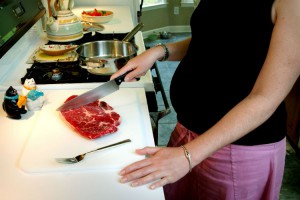Did you read the previous part about Diet While Pregnant?
During pregnancy, you have to pay attention to proteins, folates, calcium, vitamin D, iron, essential fatty acids and omega-3 and 6.
Proteins
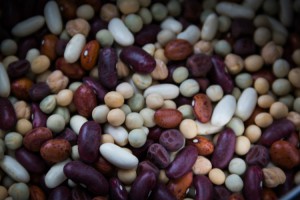
In general, for women, we recommend consuming 46 g of proteins. During pregnancy, starting from the 2nd trimester, it’s recommended that you increase your proteins by 25 g in your diet in addition to your regular intake.
Protein sources include:
- Fish
- Cooked meats and poultry
- Dairy products
- Cooked eggs
- Tofu, tempeh, nuts and legumes
To get enough omega-3s, eat two portions of fish per week. There are no suggested supplements for this, as it’s better to eat fish.
Folic Acid
Folic acids are part of the complex vitamin B group.
We suggest folic acid supplements ideally at least three months before conceiving your baby. This is to ensure adequate blood dosages from the first cell divisions to prevent different problems. These can include spinal malformations, including spina-bifida. The incomplete closing of the spine, and for more information about this, please read my article on Vitamins and Folic Acid.
Generally, we recommend 0.6 mg of folic acid per day. To achieve this, take a 0.4 mg supplement in addition to your diet. You don’t need to take more unless your health professional advises you to do so.
Guides strongly suggest taking folic acid in a multivitamin that contains other vitamins and minerals such as iron, vitamin D, etc., to prevent heart problems, limb defects and low birth weight.
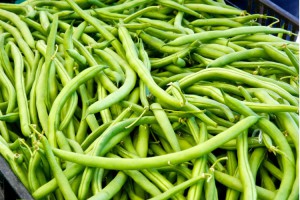
- Green beans;
- Soybeans;
- Legumes such as chick peas and lentils;
- Spinach;
- Asparagus;
- Orange juice;
- Canned pineapple juice;
- And sunflower seeds.
Many foods sold in grocery stores are enriched with folic acid, including cereal products, some pasta and flour. To find them, read their labels.
Calcium and Vitamin D
Pregnant or breastfeeding women need calcium and vitamin D to maintain their bones and teeth, ensure the development of the fetal skeleton and produce breast milk after childbirth. The minimum amount required is 1000 mg per day.
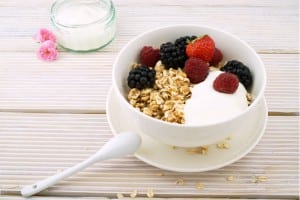
Without surprise, the best sources of calcium are:
- Dairy products made from cow milk or others (ideally with lower fat levels);
- Enriched soy drinks;
- Swiss cheese;
- Tofu;
- Plain yogurt and kefir;
- Whole sesame seeds;
- Canned sardines.
Even if dairy products were added to the classification of proteins in the Canada Food Guide in 2019, make sure you consume them frequently during pregnancy and when breastfeeding.
Given that suntanning is not a safe way to get your required amount of vitamin D, you should consume foods and take multivitamins for your desired intake.
The best sources of vitamin D are milk, enriched soy drinks and yogurt, but you can add enriched margarine and fatty fish such as salmon.
Iron
It no longer needs to be proven that it’s important for pregnant women to consume sufficient amounts of iron. Please read my article Iron During Pregnancy to learn about this essential mineral in your diet when pregnant. It prevents pregnancy complications and problems for the baby as well.
Iron serves to transport oxygen in the blood and tissue to promote the growth and resistance to infections. Considering that pregnancy is a period of high growth, iron intake should be increased to meet the requirements.
Recommended daily intake for pregnant women is 27 g of iron in addition to multivitamins, almost double normal levels.
Iron sources include:
- Red meats (ground beef, steak, etc.) because iron absorbs directly in the blood
- White meats (chicken, pork)
- Clams, oysters
- Cream of wheat, enriched cereals and blackstrap molasses
- Vegetable sources, including legumes, spinach, tofu, pumpkin and sesame seeds
Essential Fatty Acids
When talking about fatty acids or essential lipids, these are good unsaturated fats that can’t be produced by the body. They must be consumed in a nutritious diet.
Without going into the tiny details of the different required fatty acids, linoleic and linolenic fats, as well as omega-3 and 6, are essential for proper development of the baby’s brain, the nervous system and vision. Lipids are also an important energy source for the body and contribute to cell development, hormonal balance and vitamins A, D, E, and K.
With a varied diet, you can easily consume 150 g of essential lipids a day, even when pregnant. You can get them from quality oils, fish, nuts, and meat. Make sure you get your omega-3 intake from fish (salmon, sardines, trout, herring) or specific oils (linseed, canola) and certain nuts (soybean, sunflower).
Fibres
Fibres are essential for preventing many health problems. We understand their impact on regular bowel movements and preventing constipation. However, fibres also impact heart function and help prevent diabetes.
Since pregnant women have increased metabolism, you should slightly increase your intake of fibres in your diet. The target during pregnancy moving from 25 g to 28 g per day.
You can meet these fibre needs by eating more legumes, whole grains, vegetables and fruits and different nuts and seeds such as linseed and sunflower.
Iodine
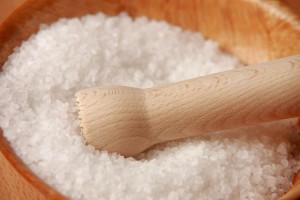
You can find iodine in iodised table salt because for many years Health Canada has had manufacturers add it to their product so that the population gets enough to prevent problems associated with deficiencies.
During pregnancy, you can cook your vegetables with iodised salt in the cooking water to get your intake without leading to possible water retention and swelling. Fish, seaweed and saltwater seafood are also good sources of iodine.
Did you know there are foods you need to avoid during pregnancy?
Photo sources : pexels, pixabay, Pixnio, Public domain pictures


